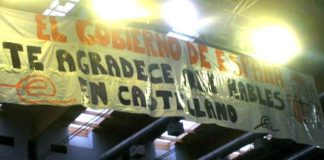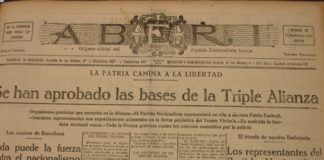Comments: Jose Inazio Lopez de Luzuriaga Fernandez
Book: Txillardegiren borroka abertzalea
Author: Pako Sudupe
Publisher: Elkar Argitaletxea, Donostia (2016).
Abstract:
Pako Sudupe’s work addresses Txillardegi’s biography.
However, this biography does not focus on dealing with his relatives or his professional career as an engineer. No. This biography takes a focus on his cultural and political profile. In the first part of the book Sudupe dwells on Txillardegi’s ideological foundations. Txillardegi criticized, to cite but a few, racism, clericalism, new Carlism disguised as Republicanism and, first and foremost, the Spanish Class Front thriving in ETA’s environment.
Indeed, he opted for a Basque Nationalist Front, so he opposed collaboration with the Spanish. The debate reached its height during the 1960s and 1970s, later ebbing in intensity. Pako Sudupe analyses in the second part the political options embraced by Txillardegi at each moment. Actually, Txillardegi’s political career is dotted with hurdles, starting from EKIN to ETA, later walking out on ETA when the Marxist-Leninist trend took over. He switched from the party ESB to the electoral platform HB following his expulsion from the former, for his determined position in favour of Basque language. He stood out in HB, still quitting it for the group Aralar for his opposition to armed struggle.
Finally, he also dropped out of the party Aralar for his position against a coalition with the Spanish party Izquierda Unida. “Peace, peace, peace, is what the word goes here around (…) As long as the Basque Country remains deprived of its right to decide its future, constrained by outer intervention, it may be possible to impose public order through the streets, but not peace, not at all” (page 334).

![TxillardegiON01-368x256[1]](https://www.naziogintza.eus/wp-content/uploads/2018/12/TxillardegiON01-368x2561.jpg)





